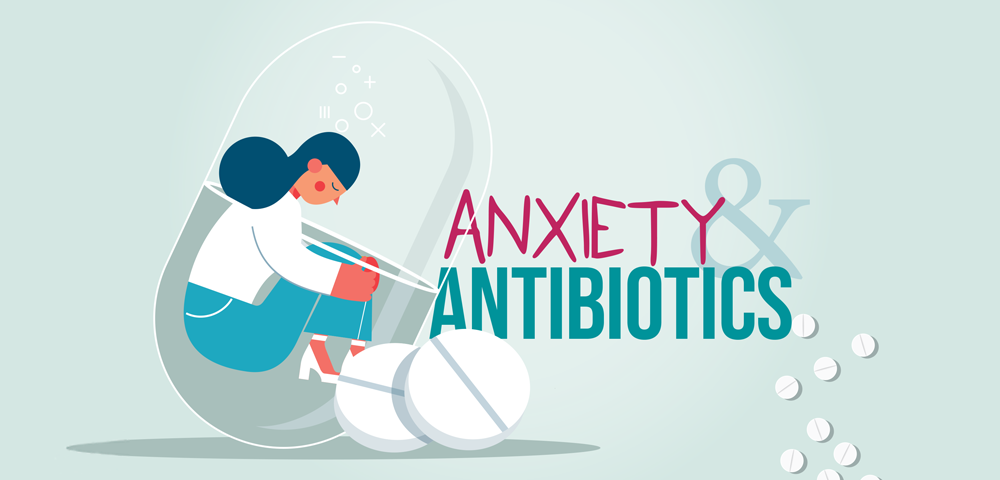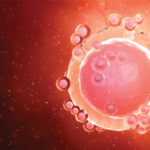
Antibiotics, among the most significant pharmacological discoveries of the 20th century, are widely prescribed.
Antibiotics, among the most significant pharmacological discoveries of the 20th century, are widely prescribed. In 2022, health care practitioners issued 236.4 million antibiotic prescriptions through U.S. community pharmacies, averaging about seven prescriptions for every 10 people in outpatient care.
While antibiotics are effective for treating certain bacterial infections, they also have drawbacks. These can include antibiotic resistance and side effects such as diarrhea, allergic reactions, and yeast infections. Additionally, antibiotics may increase the risk of psychological issues like depression and anxiety. Let’s explore the intriguing link between antibiotics and mental as well as physical health, and learn how to safeguard your well-being.
ANTIBIOTICS IMPACT THE MICROBIOTA
Did you know that antibiotics cannot differentiate between harmful and beneficial bacteria? While they target infection-causing bacteria, they also disrupt the microbiota, the body’s diverse community of beneficial microbes. Even short-term use of broad-spectrum antibiotics can change the gut microbiota for weeks, and prolonged use may lead to lasting changes in microbial balance. This matters because research shows that the gut, brain, and microbiota communicate in a system that affects mood. While our brain can influence gut health (you’ve likely heard the saying “trust your gut!”), gut microbes can also alter brain function. Microbial disruptions, such as those caused by antibiotics, can interfere with this system, leading to mood, cognition, and behavioral changes.
HOW MICROBIAL IMBALANCE IMPACTS MENTAL HEALTH
Gut microbial imbalance can harm mental health by compromising the gut barrier and reducing levels of key neurotransmitters like serotonin, GABA (gamma-aminobutyric acid), and dopamine, which are produced in the gut and regulate brain function and mood. Microbiota disruption can also reduce the production of short-chain fatty acids, such as butyrate, which help reduce inflammation and support neurotransmitter production. Moreover, changes in the vagus nerve’s function – an important communication pathway between the gut and brain – can impact how the brain processes signals from the gut, leading to emotional and psychological changes.
EMERGING RESEARCH
Research into the effects of antibiotics on mental health continues to evolve. Paradoxically, some studies suggest antibiotics may have antidepressant effects. For instance, isoniazid, an antibiotic originally developed to treat tuberculosis, was first discovered to have antidepressant properties. Other antibiotics, such as minocycline and doxycycline, have shown similar effects.
However, antibiotic use early in life has been linked to an increased risk of mood and anxiety disorders as well as behavioral issues. A 2015 study in The Journal of Clinical Psychiatry found that a single course of antibiotics was associated with a higher risk of depression and anxiety, with repeated exposure increasing this risk. Further research has shown that individuals who recently took antibiotics (i.e., within the previous three months) were more emotionally prone to sadness. Why the conflicting findings? Researchers suggest that factors such as the type of antibiotic, timing, and duration of use may influence the risk of mood concerns; and future studies are needed to gain further insights.
HOW TO PROTECT OURSELVES
While antibiotics are sometimes necessary, their potential adverse effects on the brain, gut, and microbiota can be minimized by following these five steps to support both gut health and mood balance:
- Avoid gut-damaging foods that feed harmful pathogens, irritate the gut lining, and increase inflammation. These include sugars, artificial sweeteners, fried foods, processed meats, gluten, and dairy.
- Consume gut-nourishing foods to restore gut bacteria, strengthen the gut lining, and reduce inflammation. Examples include bone broth, fiber, avocados, prebiotic-rich foods (e.g., cabbage, apples, artichokes), and fermented foods (e.g., kefir, kimchi, miso).
- Include healthy fats that are essential for reducing inflammation, supporting brain health, and maintaining a diverse gut microbiota. Choose omega-3 fatty acids from cold-water fish (e.g., salmon, sardine, mackerel) and plant-based sources (e.g., flax seeds, chia seeds, walnuts).
- Supplement with probiotics to rebalance gut bacteria during and after antibiotic use (always take them 2–3 hours apart from antibiotics). Look for probiotics containing a variety of strains, particularly from the Lactobacillus and Bifidobacterium genera, which are well-researched for gut health.
- Add collagen to your routine to provide amino acids that repair the gut lining and reduce inflammation. Choose bioactive hydrolyzed collagen peptides for improved absorption.












